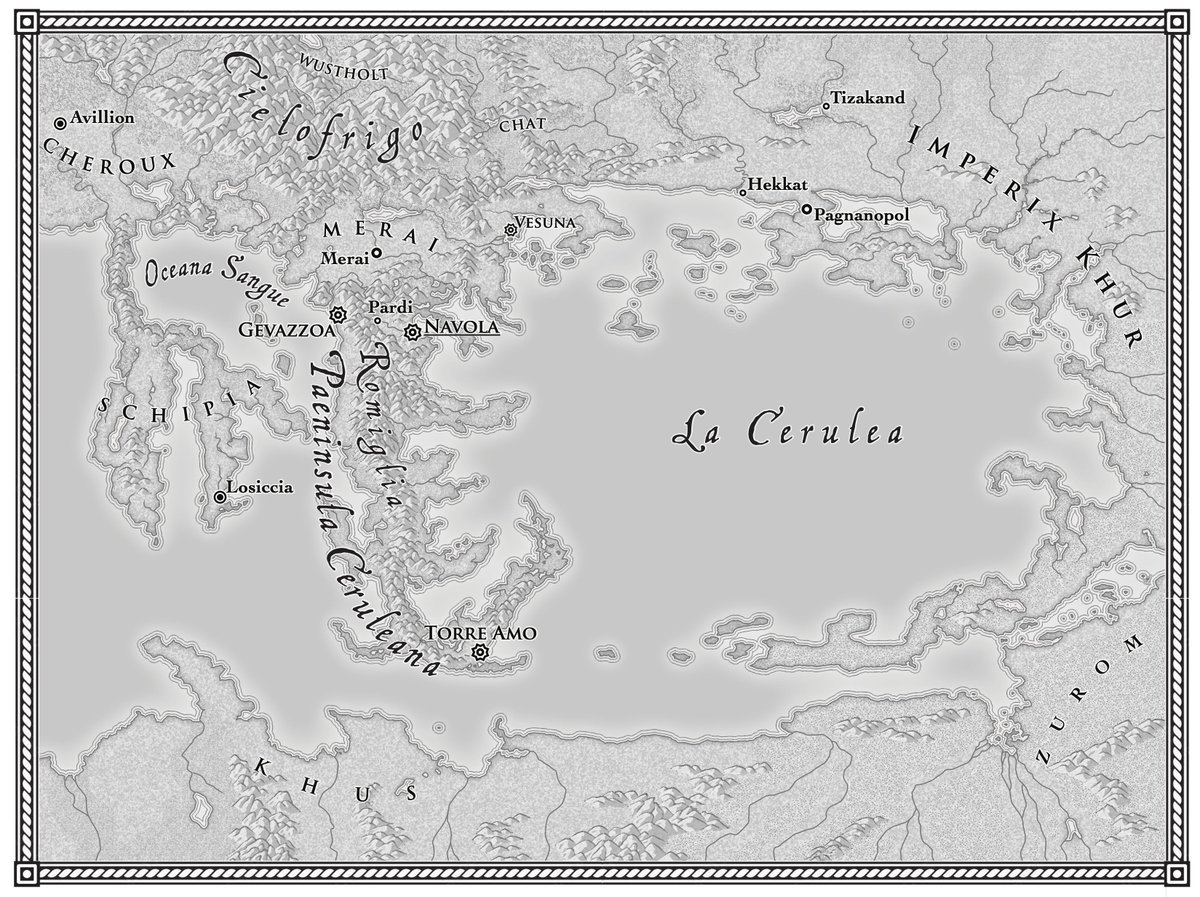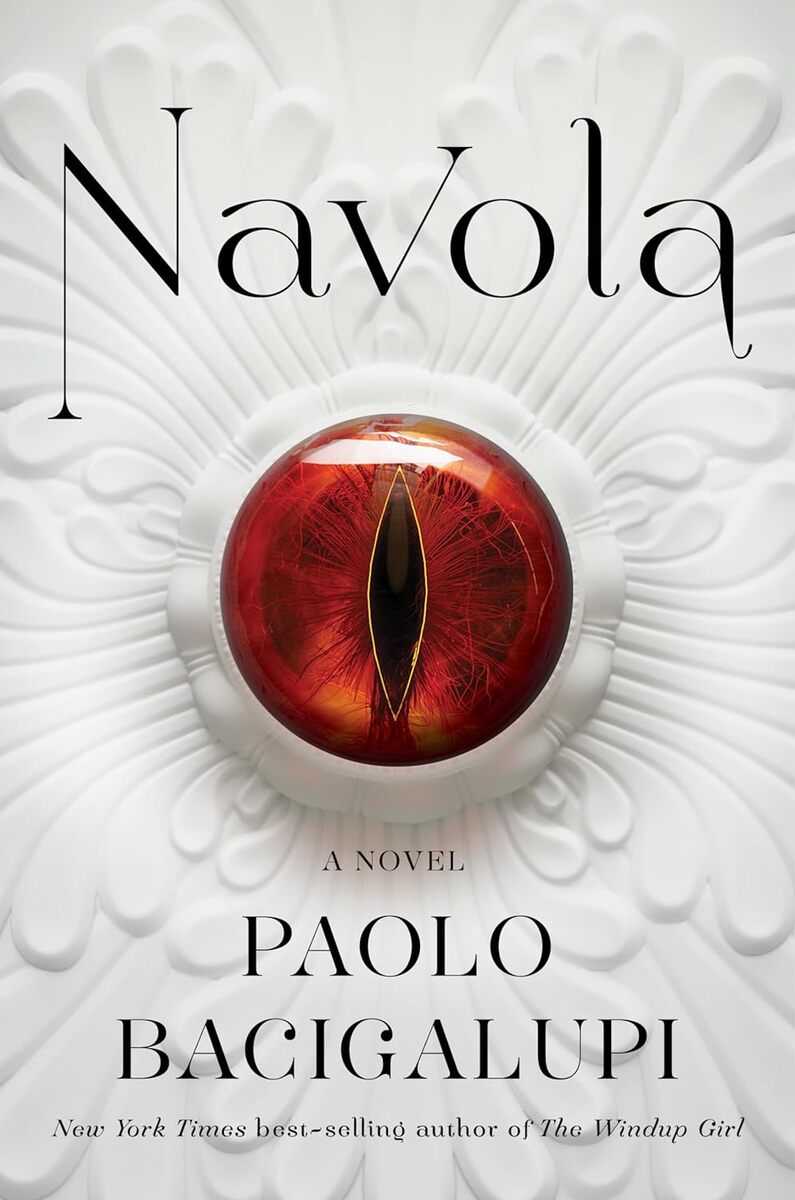
Navola
Paolo Bacigalupi
Knopf
There is a type of fantasy reader (raises hand) that will easily delay starting a new book by ten to fifteen minutes simply because it has a map in the opening pages. I say this because, of course, Paolo Bacigalupi’s Navola opens with such a map, and I naturally spent a solid amount of time looking at the place names and geography, and imagining the multitude of implications brought about by what are simply some cartographical features and place names.

In this case, the map quickly resolves itself to be of some completely made-up place that bears more than a passing resemblance to the Mediterranean, centered on a peninsula with somewhat Italian sounding names. To the north, on the other side of a formidable mountain range, things sound Germanic, to the northwest they are vaguely French, and so on. This alternate vision of place perfectly sets the tone for what is about to transpire.

Our book’s narrator, Davico di Regulai, is the young scion of the city of Navola’s most prominent banking family. His grandfather was a legendary warrior, and his father is renowned for his depth of intellect among a people known for their shrewdness, but Davico feels inadequate to the task of taking over his family’s fortunes and intrigues. He is a sweet and innocent boy as the book starts, not necessarily naive but somewhat unwilling to take brutish advantage of his elevated status.
Davico lives in a world that could easily be Renaissance-era Venice, with its bancas and mercantile fortunes, but it’s not. Everything feels vaguely familiar and ready to fit in with our knowledge of this place and time, but at the same time, it is not that place and time, and this allows Bacigalupi to bend and warp the narrative, free of the restricting bonds of commonly-known history.
Navola is a unique kind of fantasy. Its story lives in a place that is clearly and completely imaginary, yet its fantastic tendencies are mostly limited to taking place in a made-up location. There is a dragon’s eye, crystallized in death and introduced early on, whose effects could be supernatural or could be an artifact from an unreliable narrator. It’s a deft touch, and it provides just the right amount of not-of-this-Earth detail.
The prose is Tolkienesque in its ratio of detailed description to narrative action; it’s easy to spend a solid chapter or three on something that was little more than a day trip through the woods. But it’s a fascinating trip, filled with made-up idioms and mythology. The book has a solid but inconclusive ending, leading me to believe this is the first in a series. I hope this is true. ◼












